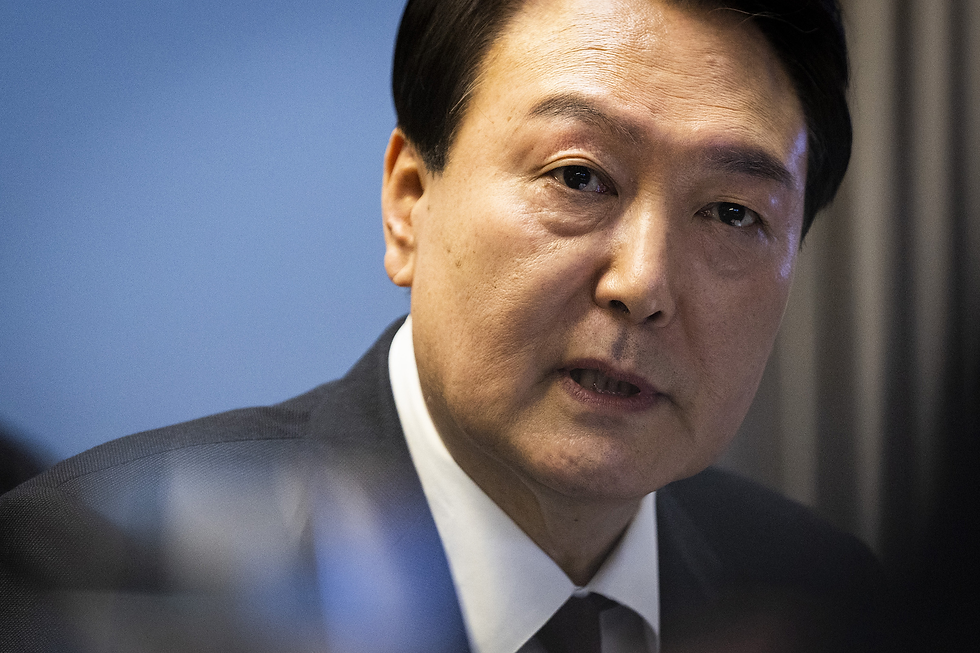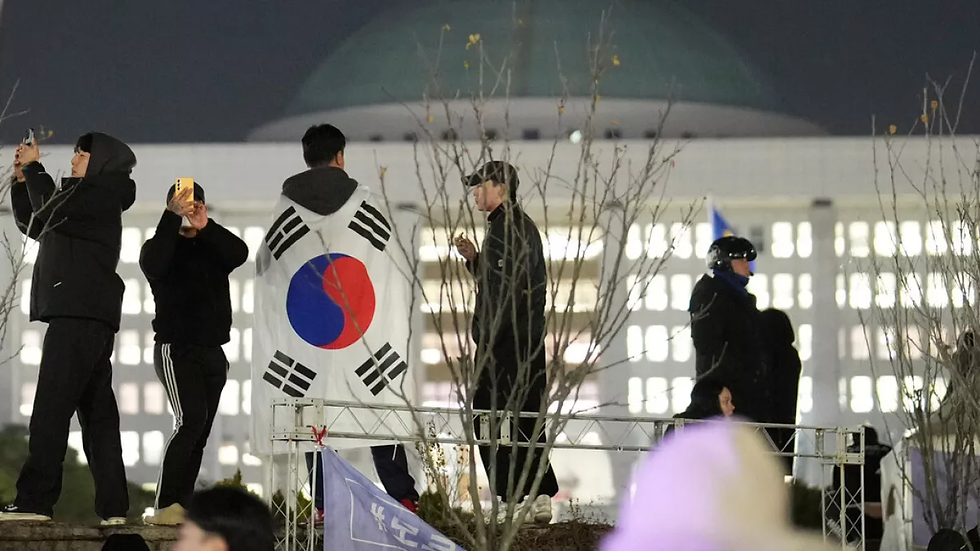South Korea's Martial Law throws K-entertainment into disarray! What happened??
- lewishooper1

- Dec 5, 2024
- 3 min read
With the unexpected events that unfolded and took Korea and the world by surprise on November 3, 2024, the Korean entertainment industry faced massive disruption following President Yoon Suk Yeol's shocking announcement. We uncover how this event took a toll on the country's leading soft export!

What happened? (Simplified)
The marshal law and government takeover in a chance to cease power, was short-lived at six hours, however during that time and since the event it has caused a lot of uncertainties within the entertainment industry.

Marshall law depending on the degree, can take control of all media outlets within the country if needed, and as a result of the late-night notice from the President, it caused global outrage, and confusion as well as at home for many Koreans.
K-industry in a state of confusion:

Following the announcement singer Lee Seung Hwan cancelled his concert, however, once the decision was revoked, the singer announced that the event would proceed as scheduled. Seo Hyun Jin also was set for a morning interview on December 4, 2024, which was cancelled at that time. A public relations agency revealed, “Seo Hyun Jin’s interview has been cancelled, and the interviews with Gong Yoo and Jung Yoon Ha scheduled for December 5th and 6th are currently under discussion.”

The quote above reads:
"As martial law is lifted, 'Like a Black and White Movie' will proceed as scheduled. I'm sorry for the confusion." — Dream Factory Club CEO Lee Seung Hwan
On the other hand, director Yang Woo Suk’s interview for the movie Big Family went ahead as planned. The event organizers decided to proceed after closely monitoring the situation.
In addition, Major entertainment companies, including HYBE, SM Entertainment, JYP Entertainment, and YG Entertainment, have reportedly received calls urging their artists to cancel appearances, refrain from attending public events, and avoid political commentary. Insiders say these instructions are framed as recommendations, but the implicit pressure is clear.
Prominent acts like BTS, BLACKPINK, and TWICE have already suspended upcoming concerts and fan meetings. A highly anticipated comeback showcase for BLACKPINK and a fan event for SEVENTEEN have been postponed indefinitely. Smaller groups and independent artists have also been forced to shelve performances, as venues across the country shut their doors.
Festivals and Public Events Cancelled Nationwide
The martial law has also cast a pall over South Korea’s lively public life. Major festivals, including the Busan International Film Festival and regional harvest celebrations, have been abruptly cancelled. Tourist hotspots, including Seoul’s bustling Gangnam and Hongdae districts, have been placed under heavy military surveillance. Public gatherings have been discouraged, and organizers of private events face the risk of intervention if their activities are deemed politically sensitive.
The martial law decree has reignited memories of South Korea’s authoritarian past, particularly the military regimes of the 1970s and 1980s. The government’s insistence that the move is aimed solely at rooting out subversion has done little to allay fears of potential overreach.
Activists and opposition lawmakers have also condemned the move, calling for immediate oversight and accountability. The Korean Civil Liberties Union has warned of potential human rights abuses under the military’s expanded powers.
K-Pop’s Global Standing in Jeopardy:
The disruption of South Korea’s cultural scene has implications far beyond its borders. K-Pop, a multi-billion-dollar industry, has long been a cornerstone of South Korea’s international brand, fostering goodwill and economic ties through its widespread appeal. Experts warn that prolonged restrictions could damage the industry’s momentum.
“K-Pop is not just entertainment; it’s a global phenomenon that represents South Korea’s openness and creativity,” said Yoon Min-Seok, a media studies expert. “Martial law risks tarnishing that image and alienating its global fanbase.”
So what happens now?
As South Korea grapples with this new chapter, the nation remains deeply divided. Supporters of the government’s actions argue that security concerns necessitate tough measures, while critics fear the long-term impact on the country’s democracy and global standing.
In the meantime, the streets of Seoul remain quiet, the stages are dark, and the vibrant world of K-Pop finds itself muted — a sobering reminder of the far-reaching consequences of martial law in a modern democracy.
Let us know your thoughts on this topic in the comments below.








Comments